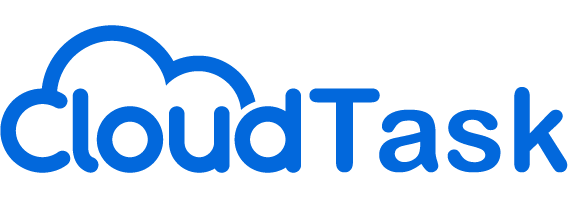Have you ever fueled your petrol car with diesel? That’s what it seems like when you hire a bad fit for your team. You think it will drive progress but ultimately, it stalls your operations.
Such a mistake costs you time and money, leaving you stranded, nowhere close to your intended goal and looking for a replacement.
Missteps like these are usually the result of applying basic recruitment approaches which only serve to broadly examine skill rather than assess remote culture fit.
Evaluating remote workers requires much more than implementing elementary methods such as specifying skills, using video tools, and creating job descriptions.
Beyond the foundational assessment requirements for RevOps roles, hiring managers must discern if a prospective candidate possesses key job-specific skills.
Hiring remote talent is a unique problem, and therefore, it underscores the need for systematic and targeted candidate evaluations.
These evaluations should assess technical proficiency, experience, and soft skills like adaptability, cultural fit, and communication.
For instance, hiring to increase productivity relies on candidates with strong analytical abilities. Reducing turnover and employee churn hinges on aligning candidates with the company’s culture and goals.
Effective communication in a distributed team can boost morale, especially in remote work scenarios.
Adaptable candidates prevent disruptions in team dynamics and processes. Lastly, candidates proficient in RevOps tools can cut recruitment and turnover costs.
In the evaluation of remote RevOps candidates, the process initially begins with sourcing great remote workers, which focuses on refining job descriptions to clearly articulate the unique demands of remote roles and identifying the best sources for qualified remote talent.
1. Evaluating Analytical Skills In A Remote Work Setting

The science of sales is integral to RevOps roles and fundamentally relies on analysis to forecast performance KPIs and sales goals.
This capability is underscored by a McKinsey Global Institute report, which found that data-driven organizations are 23 times more likely to acquire customers, six times more likely to retain them, and 19 times more likely to be profitable.
Herein lies the number one reason why sales and analytical acumen go hand in hand.
How to Evaluate Analytical Skills for RevOps in Remote Workers
Analytical skills are particularly vital for mid-level sales roles, including Account Executives, Sales Managers, and similar positions, where the ability to interpret data directly influences strategic decisions and overall business success.
When assessing analytical skills for a remote position, a structured, scenario-based, and result-oriented approach is essential.
The evaluation and interview process should focus on a candidate’s ability to contextualize raw data points, identify business opportunities, and apply strategic growth thinking to derive solutions.
Consider this focused approach to evaluate analytical skills in remote employees:
Sample Case Study – Ask remote employees to analyze a dataset of limited sample size and scope, and develop a sales strategy targeting a hypothetical customer profile.
Methodology – Present candidates with case studies that mirror real-life B2B sales scenarios. These might involve analyzing sales trends, dealing with large-scale client datasets, or strategizing around lengthy sales cycles.
Skills to Look For – Proficiency in statistical analysis for interpreting data, a keen ability to recognize patterns affecting trends, and a deep understanding of both micro and macro indicators that influence performance in B2B market segments.
The prospective remote worker should also be able to design surveys and research projects to perform these hypothetical analyses.
Tools to Use – Advanced CRM platforms such as SalesForce and Hubspot, as well as data analytics platforms like Tableau, and Power BI, which are useful for visualizing complex data sets and allow for an in-depth analysis of sales trends and market patterns.
Theoretical Framework – Utilize theoretical approaches like the SPIN (Situation, Problem, Implication, Need-payoff) Selling method to assess a candidate’s understanding of B2B sales strategies and their ability to apply these concepts in data analysis.
The Benefits of Aligning Business Challenges & Analytical Skills

Data-driven decision-making using targetted analytics enhances strategic sales planning, this is supported by a Nucleus Research study showing a $13.01 average Return On Investment (ROI) for every dollar spent on data analytics.
Improved problem-solving leads to more effective resolution of sales challenges.
Enhanced efficiency and productivity follow from streamlined processes, which is crucial for operational efficiency.
Accurate Planning is vital for precise sales forecasting and resource allocation.
2. Evaluating Technical Proficiency Among Remote Job Candidates
In a tech-enabled sales environment, software literacy is as basic as the ability to read and write.
As per the Association for Talent Development, the average training cost per employee is approximately $1,252, with an average of 33 hours dedicated to training new hires.
These costs can vary depending on factors like organization size, industry, the new hire’s prior experience, and the complexity of the training required.
The cost of training new employees is a significant consideration and hiring teams must be mindful of onboarding candidates who are tech-agnostic or easily adaptable.
How to Evaluate Tech Skills for Remote Jobs
To gauge technical aptitude in remote job applicants, implement assessments that simulate actual workplace challenges, focusing on their proficiency in utilizing essential tools like CRM systems and integrated communication platforms, while also evaluating their capacity for quick learning and efficient problem-solving in a digital work environment.
Consider these steps when assessing candidates for remote tech abilities:
Methodology – Test the practical application of tools and conduct hands-on assessments where candidates demonstrate their use of key software in simulated real-world tasks in real-time.
Sample Assessment – Provide the candidate with a list of contacts to manage using a CRM platform, demonstrating tasks like data entry, updating, and categorization.
Skills to Look For – Judge their ability to use CRM systems such as operating integrated dialers, and entering and updating data records accurately. You may also want to assess their use of email tools like Google Workspace and analyze how quickly they can use tools to solve technical problems efficiently.
Tools to Use – use HubSpot or Pipedrive as the CRM platform to manage the contact list. Integrate Aircall with the CRM for simulated calls and logging activities, and utilize Google Workspace for drafting and sending personalized emails.
Theoretical Framework – an approach that evaluates a candidate’s ability to perform job-related tasks in conditions that simulate the actual work environment is closely aligned with the experiential learning theory, developed by David Kolb.
The Benefits of Aligning Business Challenges & Technological Skills
Reduced Training Costs – According to a report by the Training Industry, the average training cost per remote employee is about $1,500 annually. Hiring candidates with pre-existing technical skills can significantly reduce these expenses.
Increased Operational Efficiency – A study by IBM found that teams using advanced CRM systems saw a 50% increase in productivity. Proficiency in RevOps tools directly contributes to this enhanced efficiency.
Adaptability to Industry Demands – Research by Gartner suggests that adapting to new software can improve an employee’s productivity by up to 30% within the first six months.
Candidates familiar with industry-specific tools can adapt more swiftly to the operational needs of the organization, thus reducing the time and resources spent on specialized training.
3. Assessing Remote Job Candidates for Communication Competencies

In the absence of face-to-face contact when hiring for remote positions, it’s crucial to thoroughly assess candidates’ proficiency in digital communication and their ability to engage and collaborate effectively through virtual asynchronous platforms.
When working remotely, particularly in customer-facing roles like cold calling, emailing, sales presentations, and software demos, conversations and relationships across various channels are vital.
How to Evaluate & Hire People Who Connect Well
Evaluating candidates’ abilities in written, oral, technological, non-verbal communication, and emotional intelligence is essential to assessing corresponding skills like clarity, connection, competency, consistency, and collaboration.
Great remote workers are capable of most or all methods of effective communication.
Methodology for Evaluating Communication Skills:
Written Communication
Assessment – Focus your interview questions around the written word. Ask job seekers to draft emails, reports, proposals, summaries or other written documents.
For example, you could ask them to write an email to a prospective client or a report based on given data.
Skills to Look For – When evaluating written communication, look for clarity and precision in conveying ideas, proper grammar, spelling, punctuation, mechanics and a well-structured flow of content.
Importance – This is essential for effective cold emailing and precise documentation of customer interactions.
Oral Communication
Assessment – Engage candidates in role-play scenarios like mock cold calls or sales pitches, and review their past presentation recordings to evaluate their real-time conversational abilities.
Skills to Look For – Focus on the candidate’s capacity to clearly articulate and engage, their active listening skills, their aptitude for building rapport and adapting their communication style to different audiences.
Importance – Crucial for conducting successful cold calls and impactful sales presentations.
Non-verbal communication and Emotional Intelligence
Assessment – Observe candidates during video interviews or role-plays, focusing on their body language and responsiveness to gauge their non-verbal communication and emotional intelligence.
Skills to Look For – Look for a consistent ability to interpret non-verbal cues accurately and display empathy in interactions.
Importance – Key for interpreting customer buying signals, especially in software demos or meetings.
Collaborative Communication
Assessment – During the interview process, assess candidates on how they manage and contribute to virtual team interactions, including their approach to sharing updates and presenting information.
Skills to Look For – Look for proficiency in using visual aids to enhance communication and an ability to foster a collaborative and inclusive environment in virtual settings.
Importance – Facilitates team collaboration and ensures alignment when working closely with others.
The Benefits of Aligning Business Challenges & Communication Style

Building customer relationships – Proficiency in both oral and written communication is crucial for building and maintaining customer relationships.
Enhanced customer experience – Cultural sensitivity and emotional intelligence in communication ensure a better understanding of customer needs.
Increased sales effectiveness – Effective communication skills directly impact the success of sales activities, from initiating contact to closing deals.
Team cohesion and productivity – Establishing a feedback culture among those who work remotely, and fostering virtual interactions contribute to team cohesion and productivity.
4. Evaluating Soft Skills In Remote Job Seekers

The competencies of self-starters are deemed fundamental and are expected of every quality remote worker in a distributed team culture.
These include alignment with organizational culture and goals, self-motivation, technical adaptability, and a deadline-driven work ethic.
How to Evaluate SoftSkills for Remote Culture
Power skills are non-trainable and intrinsic to an individual’s character and work style.
Assessing this competency can be challenging, especially if a hiring manager lacks the necessary experience to properly detect and genuinely assess personality traits during the recruitment process.
Evaluation Methodology for Self-Starters

Alignment with Organizational Culture and Goals:
Assessment – Present a situation involving a common challenge or decision-making process in your company. Ask candidates to explain how they would handle it, focusing on their approach, reasoning and problem-solving ability.
Skills to look for – The ideal candidate will possess decision-making skills, the ability to consider multiple perspectives, and the capacity to develop effective, innovative solutions.
Importance – Essential for generating a clear picture of whether a new hire is a culture fit.
Self-Motivation:
Assessment – Assign a time-bound project relevant to the job role, where the candidate must independently plan, execute, and present the results on their own schedule.
Skills to look for – Their ability to work independently, with self-discipline, setting and meeting goals, and producing high-quality work without the need for external prompts or supervision, is an indicator of a great remote worker.
Importance – Crucial for remote roles where direct supervision is minimal and productivity requirements are high.
Learning Agility & Technical Adaptability:
Assessment – Create a mock exercise where candidates are introduced to an unfamiliar, complex scenario or a new piece of technology.
Skills to look for – The ability to rapidly assimilate information, adapt approaches, and effectively apply learning to propose a solution or complete a task relevant to the role while working independently.
Importance – Vital for staying current and efficient in a technology-driven work environment.
Behavioral Suitability:
Assessment – start by establishing a baseline through personality tests and background checks, along with calling references.
Then assess the candidate’s ability to handle pressure, their emotional intelligence, and other key behavioral traits essential for thriving in a remote work environment by putting them on the spot safely and productively.
Skills to look for – look for indicators such as nervous reactions under pressure, responses to challenging scenarios, and non-verbal cues that reveal a candidate’s composure, self-awareness, adaptability, and emotional intelligence in high-pressure situations.
Importance – Understanding these behavioral responses provides insight into how a candidate might perform under stress, adapt to unforeseen challenges, and effectively communicate in critical situations, all of which are key to remote culture.
Deadline-Driven Work Ethic:
Assessment – Design a multi-part task that simulates a typical project in your organization with a tight deadline. Provide clear objectives and a specific timeframe for completion.
Skills to look for – Evaluate how the candidate prioritizes tasks, manages time, handles pressure, and effectively meets the deadline with quality work.
Importance – Key for maintaining project timelines and ensuring operational continuity.
Aligning Soft Skills with Business Challenges in Remote RevOps Roles
Alignment with Organizational Culture and Goals:
Business Impact – Enhances organizational cohesion, team effectiveness and culture fit. Candidates who align well with the company culture and goals contribute to a more unified and productive remote work environment for the long haul.
Challenge Addressed – Reduces cultural misalignments and conflicts, which are crucial in remote settings where interpersonal interactions are limited.
Self-Motivation:
Business Impact – Promotes autonomy and initiative. Self-motivated individuals are more likely to take ownership of their tasks and responsibilities, driving projects forward without the need for constant supervision.
Challenge Addressed – Addresses the challenge of maintaining productivity and engagement in remote settings where traditional motivational factors might be less pronounced.
Learning Agility & Technical Adaptability:
Business Impact – Ensures the team remains agile and adaptable to new technologies and methodologies, keeping the organization competitive in a rapidly evolving field.
Challenge Addressed – Mitigates the risks associated with rapid technological changes and the need for continuous learning and adaptation in remote work environments.
Deadline-Driven Work Ethic:
Business Impact – Guarantees timely project completion and effective time management, which are essential for meeting client expectations and maintaining operational efficiency in remote setups.
Challenge Addressed – Crucial for managing time-sensitive tasks and projects in remote work scenarios where traditional office-based structures and schedules are absent.
Final Thoughts

Evaluating remote workers is less about ticking boxes based on resume keywords and more about strategy.
The real skill lies not just in assessing the obvious – such as tech savviness or analytical sharpness – but in deciphering those subtler hues of character and compatibility to complement what’s listed on a candidate’s resume and cover letter.
Ultimately, assessing candidates to inform hiring decisions should be carried out through a process that resonates with your company’s mission and core values.
That process should be paired with a clear understanding and a well-defined framework of what is to be evaluated, the methods to effectively frame that evaluation, and the subsequent business impact and end goal.
The hiring process doesn’t have to be time-consuming when recruiting for remote teams. Finding the right person or cultural fit in a remote environment means filtering through a diverse talent pool with diverse methods.





